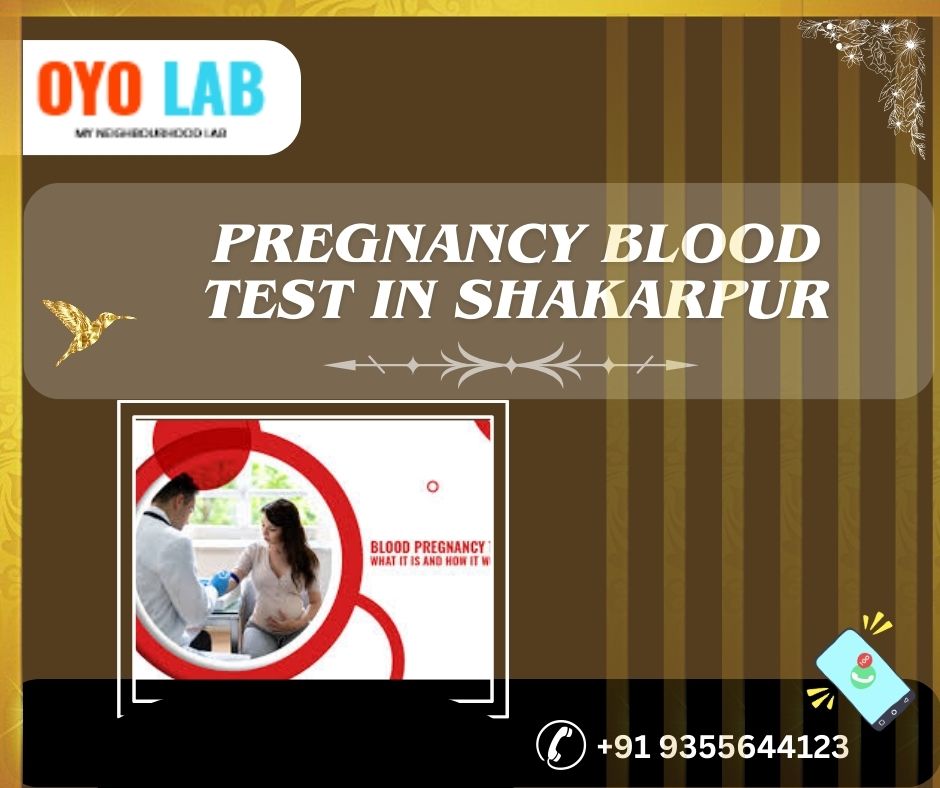
pregnancy blood test in shakarpur
By Shilpa | March 22, 2025
Introduction to pregnancy blood test
A pregnancy blood test is a medical test used to confirm pregnancy by detecting the presence of the hormone human chorionic gonadotropin (hCG) in the blood. This hormone is produced by the placenta shortly after the fertilized egg attaches to the uterine lining.
There are two types of pregnancy blood tests:
- Qualitative hCG Test: This test simply confirms whether hCG is present in the blood, indicating pregnancy.
- Quantitative hCG Test (Beta hCG Test): This test measures the exact amount of hCG in the blood, which can help determine the pregnancy’s age and detect potential issues.
Advantages of Pregnancy Blood Tests:
- Early Detection: Blood tests can detect pregnancy earlier than urine tests, usually within 6-8 days after ovulation.
- Accurate Results: Blood tests provide precise measurements of hCG levels, which are helpful for monitoring pregnancy health.
- Medical Insights: The quantitative test can assist in identifying concerns like ectopic pregnancy or potential miscarriage risks.
Doctors may recommend a pregnancy blood test if early detection is required or if there are signs that need closer monitoring.
Importance of pregnancy blood test
A pregnancy blood test is essential for confirming pregnancy and ensuring the health of both the mother and the developing baby. Its importance lies in the following aspects:
- Early Detection: Pregnancy blood tests can detect the hormone hCG earlier than urine tests, often within 6-8 days after ovulation. This allows for early confirmation of pregnancy.
- Accurate Results: Blood tests provide precise measurements of hCG levels, reducing the chances of false-positive or false-negative results.
- Monitoring Pregnancy Health: The quantitative hCG test helps track hCG levels, which can indicate how well the pregnancy is progressing. Unusual hCG patterns may signal concerns like ectopic pregnancy or potential miscarriage.
- Detection of Multiple Pregnancies: Higher-than-normal hCG levels may suggest a twin or multiple pregnancy.
- Identifying Pregnancy Complications: Blood tests can help identify issues such as molar pregnancy (abnormal growth in the uterus) or other medical conditions that require attention.
- Assessment for Medical Conditions: During early pregnancy, blood tests may also check for conditions like anemia, infections, or hormonal imbalances, ensuring timely medical care.